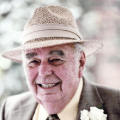Today marks the 67th anniversary of the bombing of Nagasaki Japan with a nuclear weapon. AP reports that Japanese officials are pledging, on this occasion, to seek a society less reliant on nuclear energy.
An implosion type nuclear weapon with a plutonium core nicknamed “Fat Man” was used on Nagasaki. The event came at the end of World War II, and is believed by many, along with the bombing of Hiroshima four days earlier, to have precipitated the surrender of Japan. Much controversy still surrounds the decision to use atomic weapons on Japan. There are still living survivors of both events. They are referred to as Hibakusha in Japanese society.
Events at Fukushima Daiichi following the March 11 2010 earthquake and Tsunami have created a new kind of nuclear dilemma for Japan.
I personally believe the ingenuity, creativity, scientific and industrial knowledgebase, and steadfast perserverance of the Japanese people will bring them out of this situation in ways that provide solutions, hope and inspiration for the rest of the world.
As members of a world community of nations, I believe it is all of our responsibility to make sure that no more people are forced to endure the type of suffering and uncertainty created by Hiroshima, Nagasaki, and Fukushima Daiichi.
NHK Japan offers this coverage and video footage of the anniversary event at Nagasaki, which was reportedly attended by U.S. Ambassador John Roos, and a grandson of President Harry Truman (who ordered the use of atomic weapons on Japan).
NHK presented this award winning documentary on the children of Nagasaki in 2002.
Comments closed

